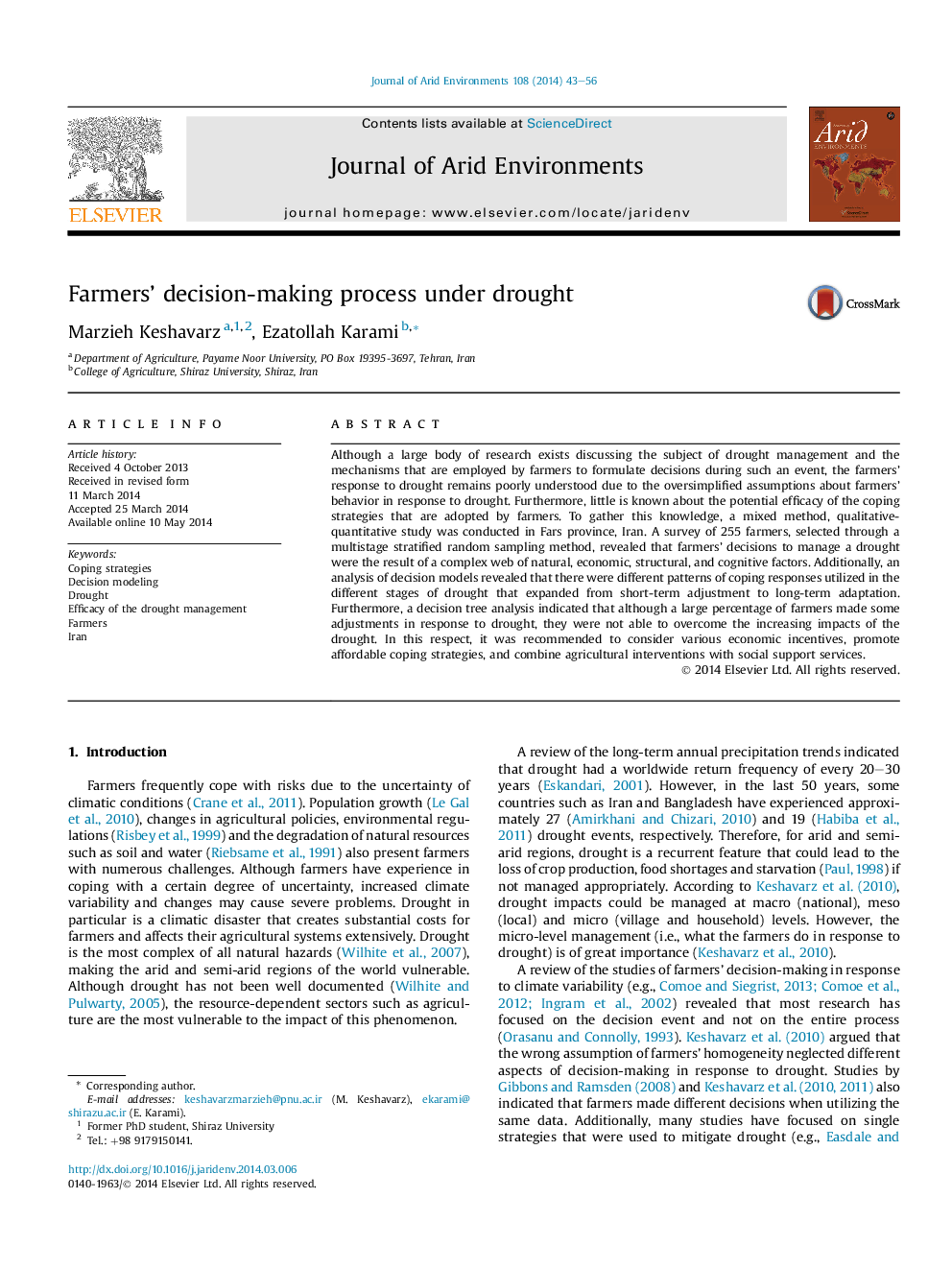| Article ID | Journal | Published Year | Pages | File Type |
|---|---|---|---|---|
| 4392966 | Journal of Arid Environments | 2014 | 14 Pages |
•The mechanisms that underlie how farmers make decisions are poorly understood.•Little is known about the potential efficacy of coping strategies adopted by farmers.•Farmers' decisions to manage drought were products of a complex web of factors.•There were different patterns of coping response under different stages of drought.•Farmers coping activities were not sufficient to overcome the impacts of drought.
Although a large body of research exists discussing the subject of drought management and the mechanisms that are employed by farmers to formulate decisions during such an event, the farmers' response to drought remains poorly understood due to the oversimplified assumptions about farmers' behavior in response to drought. Furthermore, little is known about the potential efficacy of the coping strategies that are adopted by farmers. To gather this knowledge, a mixed method, qualitative-quantitative study was conducted in Fars province, Iran. A survey of 255 farmers, selected through a multistage stratified random sampling method, revealed that farmers' decisions to manage a drought were the result of a complex web of natural, economic, structural, and cognitive factors. Additionally, an analysis of decision models revealed that there were different patterns of coping responses utilized in the different stages of drought that expanded from short-term adjustment to long-term adaptation. Furthermore, a decision tree analysis indicated that although a large percentage of farmers made some adjustments in response to drought, they were not able to overcome the increasing impacts of the drought. In this respect, it was recommended to consider various economic incentives, promote affordable coping strategies, and combine agricultural interventions with social support services.
